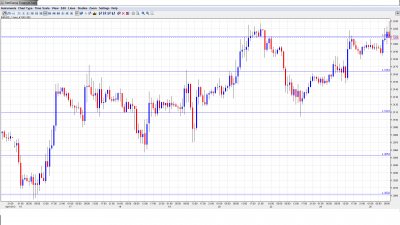Euro dollar moved upwards yesterday (April 24th), breaking the 1.32 level. The markets will be in a listening mode today, as ECB President Mario Draghi and Federal Reserve make statements today. This will be followed by an FOMC economic report, a press conference, and a speech by the US Treasury Secretary. In the US, the key releases of Consumer Confidence and New Home Sales failed to calm market concerns about trouble in the US economy. In addition to all of the scheduled speeches, US Core Durable Goods Orders, a key indicator, will be released later today.
Here’s an update on technicals, fundamentals and what’s going on in the markets.
EUR/USD Technicals
- Asian session: EUR/USD moved above the 1.32 level, reaching 1.3207, before consolidating at 1.3196., The pair is moving upwards in the European session, trading at 1.3219.
- Current range: 1.3212 to 1.33.
- Further levels in both directions: Below: 1.3165, 1.3110, 1.3050, 1.30, 1.2945, 1.2873, 1.2760, 1.2660 and 1.2623.
- Above: 1.33, 1.34, 1.3437, 1.3486 and 1.3550.
- 1.3212 is currently being tested by the pair and is now pivotal.
- 1.3165 is providing weak support.
Euro/Dollar showing movement just above 1.32 – click on the graph to enlarge.
EUR/USD Fundamentals
- 7:00 ECB President Draghi Speaks.
- Tentative: German 30-y Bond Auction.
- 12:30 US Core Durable Goods Orders. Exp. +0.6%.
- 12:30 US Durable Goods Orders. Exp. -1.5%.
- 14:30 US Crude Oil Inventories. Exp. +2.7M.
- 16:30 FOMC Statement.
- 16:30 Federal Funds Rate. Exp. <0.25%
- 18:00 FOMC Economic Projections.
- 18:15 FOMC Press Conference.
-
21.15 US Treasury Sec Geithner Speaks.
For more events later in the week, see the Euro to dollar forecast
EUR/USD Sentiment
- FOMC Meetings – More of the Same?: The Federal Reserve may live up to its name yet again, and act carefully and in a reserved manner. The Fed is likely to recognize the economic weakness in its statement, and add more caution. Economic predictions might be marginally lowered. The markets would love a whiff of change in monetary policy, but this isn’t likely to happen. The FOMC isn’t likely to introduce any policy change in the upcoming meeting. This will mean no further rounds of QE, and no change in interest rates in the foreseeable future.
- Government Auctions – Is the Price Too High?: In Spain, the government managed to raise enough money on its short-term bonds, but at a steep price, as the country’s borrowing costs have almost doubled. An auction in Italy was also costly for the government, as borrowing costs are now at their highest level since January. The markets received some relief from the successful auction in the Netherlands, where yield debts declined.
- US Releases Continue to Concern Markets: The markets had a lukewarm reaction to two key US releases on Monday. Consumer Confidence dropped slightly in March, and posted a reading of 69.2, which almost matched the market forecast. The housing sector continues to be a soft spot in the US recovery. New Home Sales came in at an annual level of 328K, marginally higher than 321K expected. This represents a 7.1% fall from last month, driven by a significant upside revision of data from 313K to 353K. The official House Price Index rose by 0.3%, beating the market forecast of 0.1%. However, the release followed a serious downside revision of last month’s figure from 0% to -0.5%.
- European PMI Data Disappoints: PMI data released from the Euro-zone, France and Germany were mostly weak. French Services PMI and German Manufacturing PMI posted numbers well below the market forecast, and Euro-zone Services PMI and Manufacturing PMI also came in below the market predictions. This is a cause for concern, as the survey of purchase managers clearly points to weakened activity in the service and manufacturing sectors. Further weak releases out of Europe will make the markets even more nervous, and could affect the direction of the Euro.
- Markets face Elections Uncertainty: In France, Socialist challenger Francois Hollande will face President Nicholas Sarkozy in the presidential run-off after inconclusive results in the first round. Hollande is not considered pro-market, and the Euro could be affected, at least initially, if Hollande wins the election. As well, the Dutch government resigned on Monday, after failing to reach agreement on a budget to bring its deficit within EU limits. The election could be a referendum on the Netherland’s relationship with Europe, and put further strain on the Euro. In the short-term, the political uncertainty threatens to undermine the Netherland’s AAA rating.

